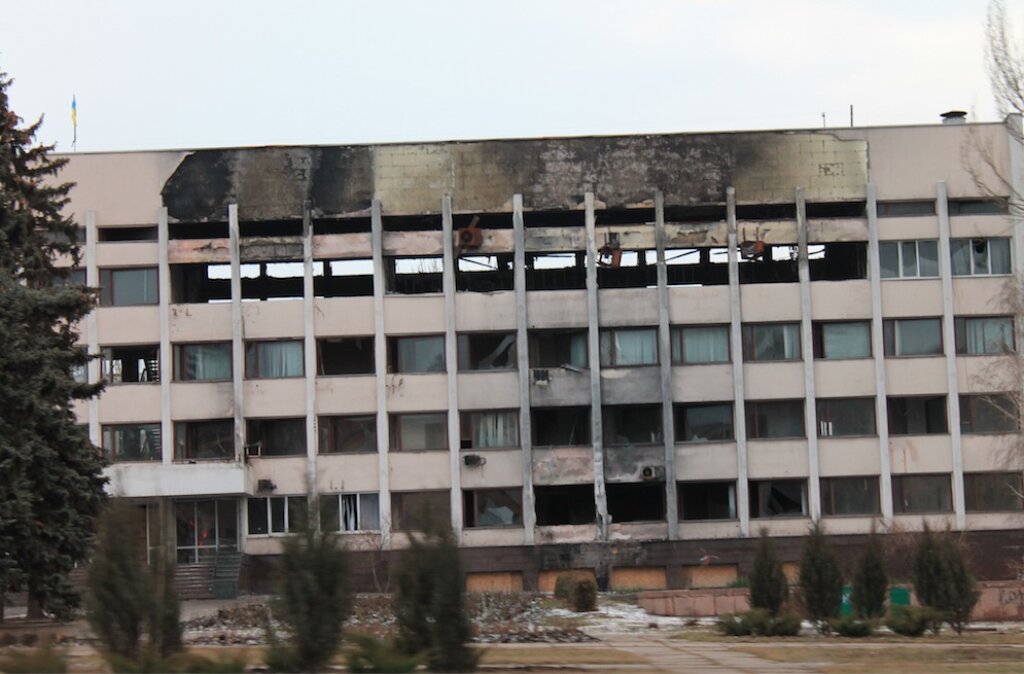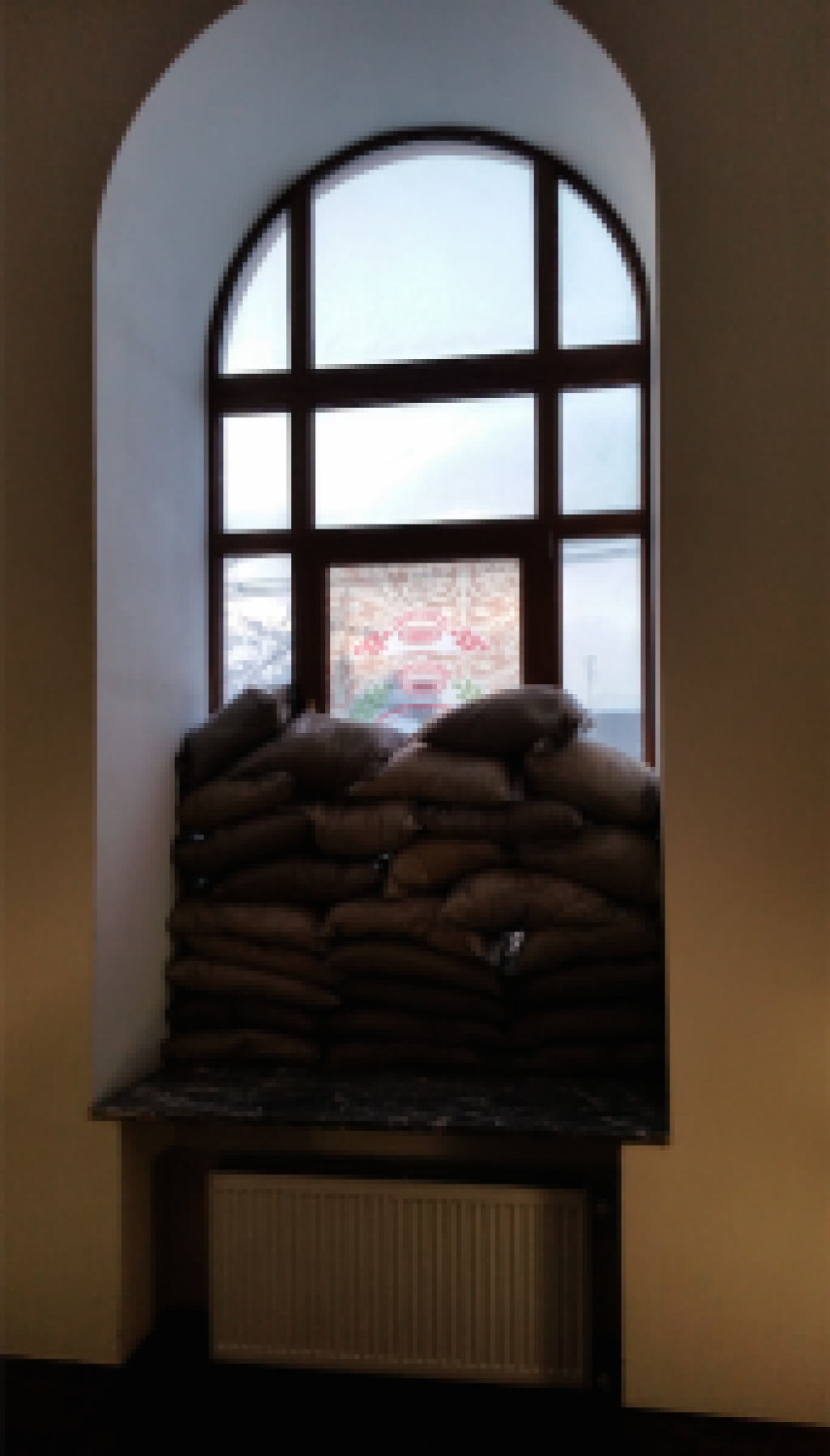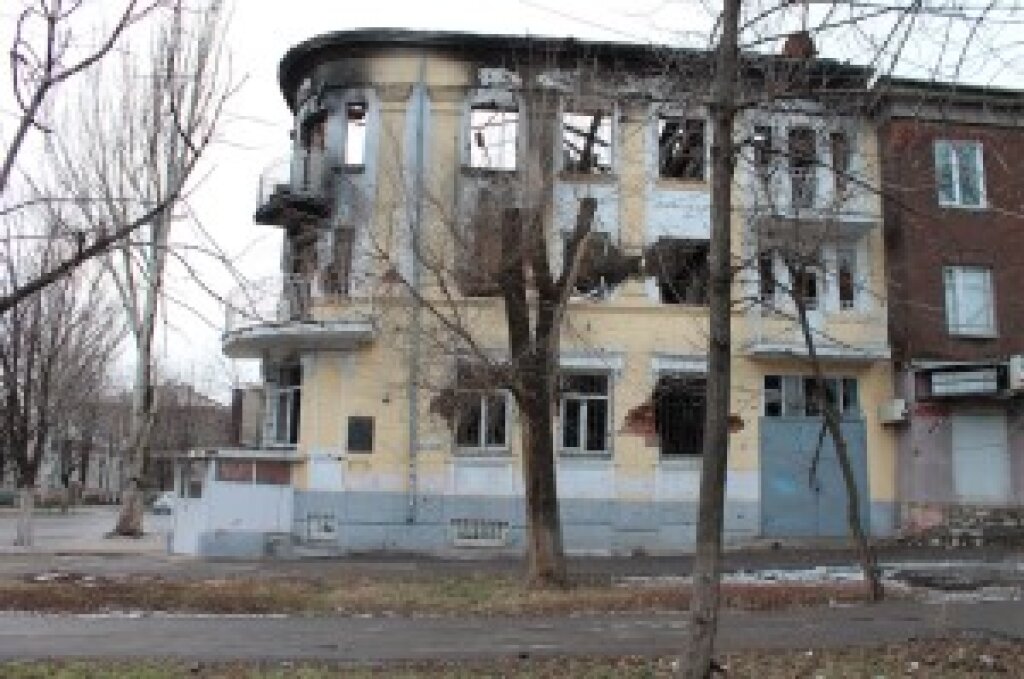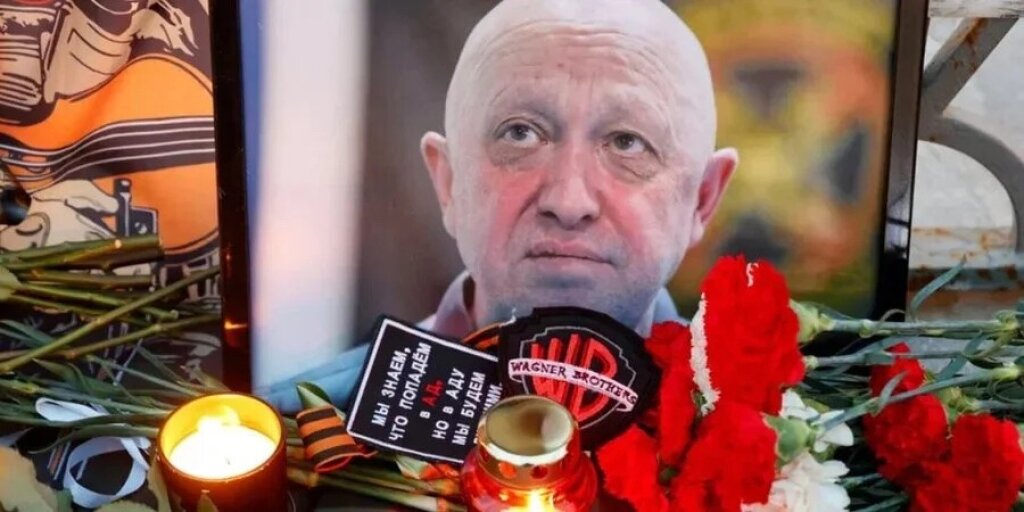Tad Schnaufer II is a Master's student in the Center for Global Affairs at the New York University School of Professional Studies.
The days before Christmas in most cities consist of last minute shopping and spending time with family. That was no different in Mariupol, Ukraine this year as people prepared for their January 7th Orthodox Christmas. Mariupol sits on the front line of the current Ukrainian Conflict between the Ukrainian Government in Kiev and the Russian-backed separatists in Eastern Ukraine. I have recently returned from the city and have found that the situation has changed drastically in the couple of weeks since my visit. Rebels have shelled the city since my return, creating a stark contrast to the to the Mariupol I visited.
Most days the sound of artillery could be heard in the distance, but in the week leading up to Mariupol’s Orthodox Christmas there were no such disturbances. People still shopped in stores with full shelves. Banks were open as well as restaurants and buses drove their normal daily routes. Food was in no shortage and people gathered at the city center around the New Year’s Tree. Though the people did not talk of war, the evidence of the past and impending conflict surrounded them. People had taped most windows to keep the vibrations of the distant shells from shattering them. Some of the bigger windows had sandbags reinforcing them. Soldiers appeared around the city, but had no major presence on the streets. Once in a while an armoured column would go by or series of military supply vehicles would trickle through the streets. The main military positions surrounded the city placing little impact on Mariupol’s citizens. Although, to enter or exit the city one had to travel through a military checkpoint manned by newly recruited Ukrainian Army soldiers. The younger soldiers manned the checkpoints and forward positions facing the rebel held territory only 9 miles to the east. The city’s hotels hosted many of the Ukrainian military leaders as they returned from observing the defensive positions of the city. City government buildings stood with burnt walls and broken windows near the center of the city. A local police station a few blocks away showcased bullet holes and charred walls from separate attacks in 2014. Similar scars on residential and commercial buildings throughout the city have now joined these signs of conflict.
When asked in early January how they coped with the war, people thought back to rougher conditions in the summer when the soldiers did not even have boots, but the Ukrainian Army and people in Mariupol seemed well supplied to celebrate their Christmas. With all of this around them, the people of Mariupol carried on relatively undaunted by the crisis. People gathered to celebrate their Christmas around the city. Some enjoyed a family feast on January 6th (Christmas Eve) and the younger generation had plans to go to the movies on the night of Christmas. One would say that the city and its citizens had adapted to their conditions on the front line and gave it little thought. One had a hard time finding someone concerned about an attack and most went about their business as they had in years past. No one predicted that only a couple weeks later those same people would be thrown back into an atmosphere of fear, anger, and disappointment.
Mariupol seemed to have adjusted to a lifestyle bearable with the main fighting taking place kilometers away, but now it has been thrust back into the war’s path. Mariupol’s key position on the Azov Sea has made it a major objective for the rebel forces. On Saturday the 24th, the city was indiscriminately shelled killing 30 civilians and wounding many others. Buildings burning around the city changed the once calm and sturdy resolve of the people to live as if there were no war. Only a couple weeks before they were shopping and headed to the movies without thought of attacks, now people around the city are preparing in earnest for the impending siege. Sandbags are showing up around the city because the taped widows will hold together from the vibrations of distant shells, but will do little against direct rocket attacks such as the one on Saturday. The Ukrainian Army has an increasingly strong presence around the city now and it will surely fight against any rebel attack.
Many in Mariupol did not expect a rebel offensive, especially in the winter. The recent attacks will truly test the will of a city that has been on the frontlines since last summer. The Ukrainian Army has closed all the major routes in and out of the city and the people are morning the deaths of those killed in the recent attacks. Increasing evidence has surfaced pointing out that Russia continues to send the rebels massive amounts of equipment and personnel. With a deteriorating economy, Putin might be thinking that an expanded war into the Ukraine could buy him time. With that time, He can wait for oil prices to increase and the dimensioning of some Western nations' resolve to maintain their sanctions against him. While Putin waits and gambles in Ukraine, the people of Mariupol suffer as new reminders of the deadly conflict are being forced upon them.





